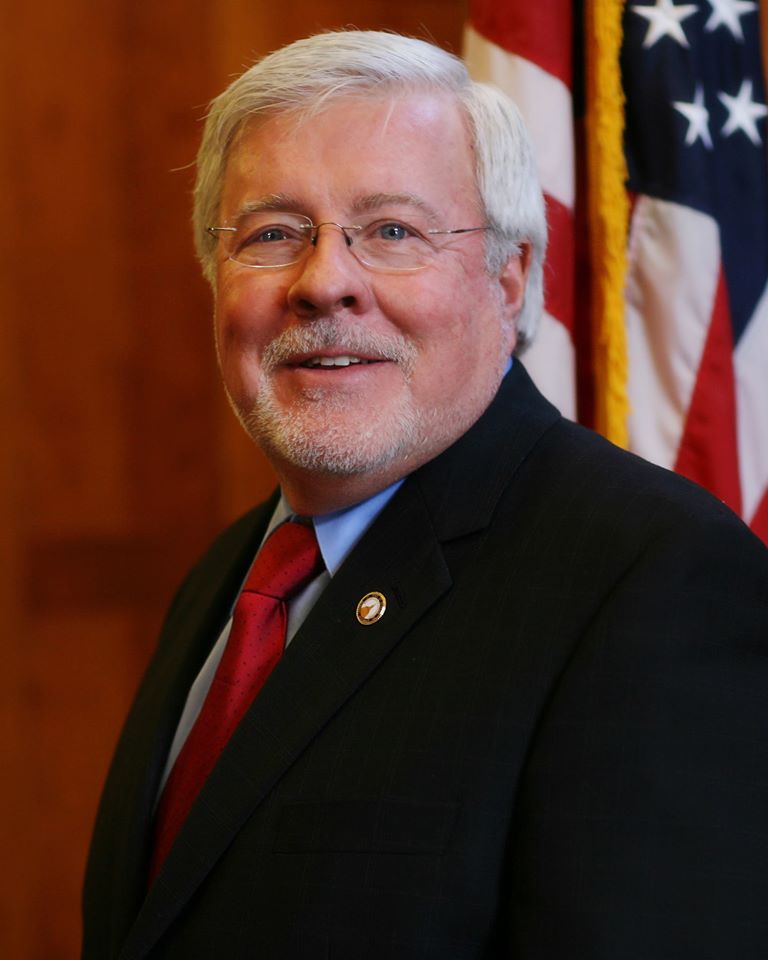Under the Gold Dome…. A Message from Rep. Howard Maxwell
 Monday, February 27 th , we returned to Capitol Hill for week eight of the legislative session, which ended Friday with Crossover Day. Any legislation that did not pass out of its respective chamber by Friday’s deadline, will not have time to make it through the process and therefore will not be reconsidered until next session. We passed numerous bills this week in hopes that we can continue positive reform efforts and progress in Georgia.
Monday, February 27 th , we returned to Capitol Hill for week eight of the legislative session, which ended Friday with Crossover Day. Any legislation that did not pass out of its respective chamber by Friday’s deadline, will not have time to make it through the process and therefore will not be reconsidered until next session. We passed numerous bills this week in hopes that we can continue positive reform efforts and progress in Georgia.
Medical Cannabis Oil Expansion
One bill passing overwhelmingly was House Bill 65, dealing with the expansion of Medical Cannabis Oil. HB 65 expands our current medical cannabis law by adding eight more medical conditions to those whom would be allowed to apply for the THC oil registry. The additional conditions are as follows: Tourette’s syndrome; autism spectrum disorder; Epidermolysis Bullosa; Alzheimer’s disease; HIV; AIDS; peripheral neuropathy; and those who are in a hospice program. Other provisions of the bill are as follows:
- Patients may possess cannabis oil with a maximum of 5 percent THC and a maximum amount of 20 fluid ounces.
- Registration requirement with the Georgia Department of Public Health after physician recommendation.
- Exemption from prosecution in Georgia for possession of medical cannabis oil that has been legally obtained in another state and meets the state requirements.
- Reciprocity regarding medical cannabis registration cards of other states, as long as the medicine in such a person’s possession complies with Georgia’s laws.
Upon passing the 2015 law for allowance of medical cannabis oil, we soon heard from patients that shared concerns of prosecution for bringing the medicine into Georgia from other states. While this is an ongoing conversation that I am sure we will continue to have in the future, we do believe the expansion and prosecution exemption is a step in the right direction. This bill is now under review in the Senate. The House is also considering the Senate version of the bill which lowers the THC amount from 5% to 3% and only expands the bill to Autism Spectrum disorder.
Education Reform
Education reform continues with the passage House Bill 338 which seeks to improve our lowest performing public schools by creating a support and assistance system that would fall under the State Board of Education’s (SBOE) intervention power. The bill provides the creation of a new level of governance to oversee schools receiving unacceptable ratings. The “turnaround system” would be led by a Chief Turnaround Officer (CTO) who would be appointed by the SBOE and would be a Department of Education employee. The chosen CTO would be required to have minimum of 10 years of experience in K-12 education and experience in a principal position or higher in a public-school system for at least three years. Different from past proposals, this legislation allows for school systems to enter into a contract with the SBOE to receive help. Upon identification of struggling school systems, the CTO would extend the intervention contract offer to struggling schools. Should the school choose to enter the contract, it removes them from the SBOE’s current intervention process, and if the school refuses the contract, the school would remain in the current intervention process. If the school agrees to the contract, the CTO would manage and oversee turnaround schools, recommending experienced individuals who have a track record of improving failing schools. Further, the CTO would assist in creating initiatives to address community conditions, including poverty, wellness, transportation and adult educational opportunities. The bill also expands the SBOE’s ability to remove local boards of education and creates a Joint Study Committee on the Establishment of a State Accreditation Process which will be tasked to explore the advantages and disadvantages of establishing a state public school and school system accreditation process.
Kinship Care
With over 100,000 children in kinship care, we continue our efforts to improve temporary guardianship conditions through the passage of House Bill 330 and House Bill 331. HB 330 would require the Division of Family and Children Services (DFCS) to provide relatives or family friends who have taken on the guardianship of a child, with contact information for a regional DFCS case worker who is knowledgeable in kinship care and assistance programs available. House Bill 331, known as the Caregiver Educational Consent Act, would authorize a kinship caregiver to give legal consent for educational services, medical services relating to academic enrollment, curricular and extracurricular participation. The bill also creates the Kinship Caregiver's Affidavit, a form that would be valid for one year designating the caregiver as a school’s point of contact for the child regarding attendance, discipline and educational progress, but would not affect the rights of the child’s parent or legal guardian. Current Georgia law provides that Kinship caregivers must obtain a signature from the child’s parent, which is not always possible under certain circumstances. There are over 100,000 children in Georgia in kinship care, and this legislation would provide support to these families across the state by simplifying processes and providing caregivers with necessary resources to help them raise a child.
Military Measures
As a result of the House Military Working Committee, we continue to pass legislation aimed at furthering our reputation as a “military friendly” state. Last week we passed two bills for the betterment of our military communities. The first was House Bill 245 which would require the Georgia Professional Standards Commission to streamline the Georgia workforce entry process for military spouses. This legislation was introduced following last session’s passage of the Military Spouses and Veterans Licensure Act, which requires our state’s professional licensing boards to implement a process by which military spouses could receive expedited licenses. While this bill worked to address this concern, the act inadvertently omitted teacher’s licenses from eligibility. HB 245 corrects this exclusion by authorizing military spouses who serve as certified educators in another state to teach in Georgia’s public schools immediately upon relocation while awaiting permanent licensure.
The second bill regarding our military communities was House Bill 470, which would authorize the Department of Economic Development to create a grant program to assist the identification of development opportunities at and around military installations. Military communities would be required to submit a grant application to the Department of Economic Development, and the department would determine the grant amount on a case-by- case basis. HB 470 provides our military communities the financial means to invest in bettering our military installations, which currently represent the single largest economic development investment in our state.
The last day of session, Day 40, is set for March 30 th . Over the next few weeks, we will begin consideration of the many Senate bills that are now in the House chamber. As we move into the final stretch of the 2017 legislative session, please reach out to me with concerns or questions! As always, I will continue to update you weekly on all that happens under the Gold Dome. It is an honor to serve as your voice on Capitol Hill and I thank you for allowing me to work on your behalf.




















